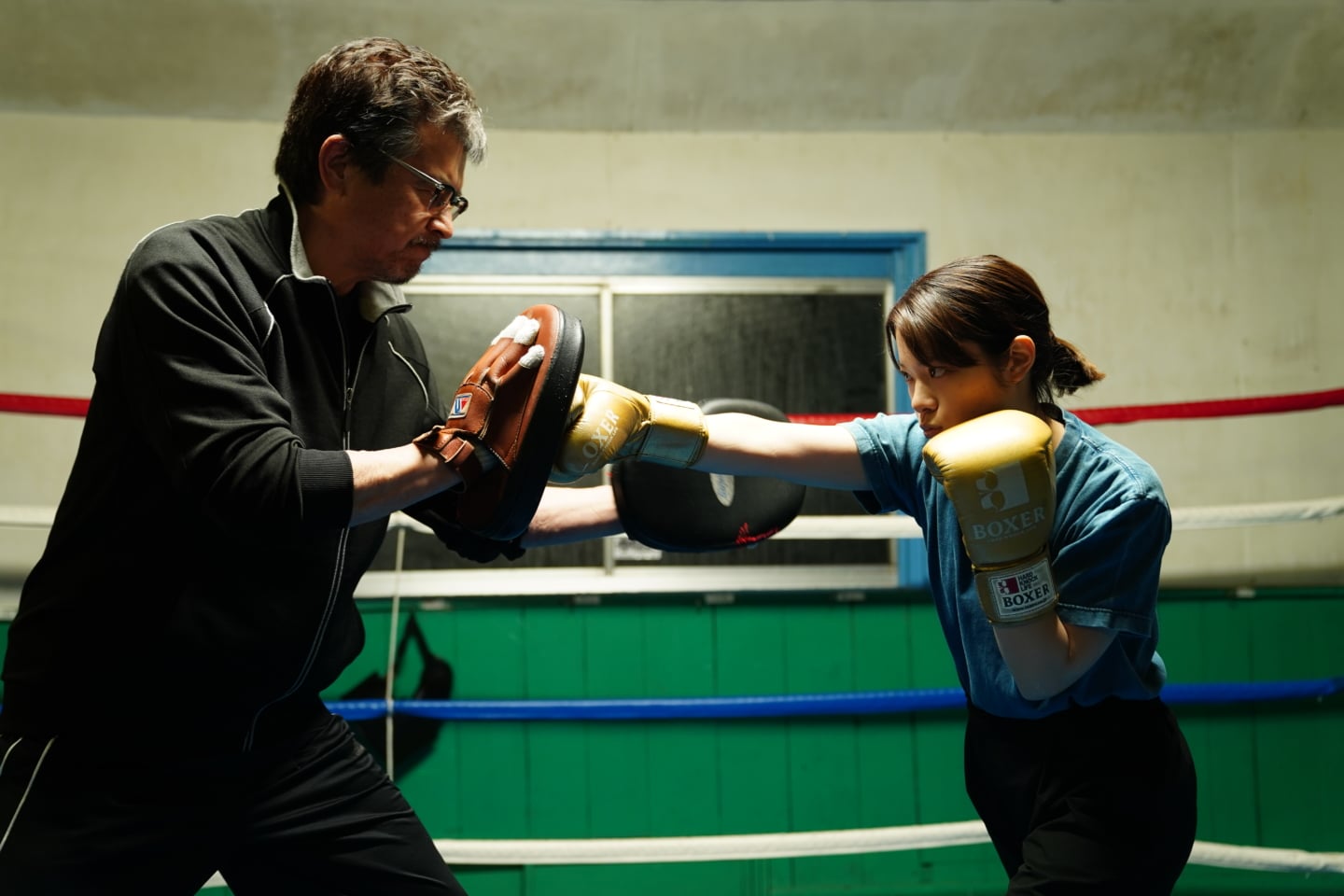In the quiet shadows of the pandemic, a stoic female flyweight pugilist is searching for the will to fight again. Small, Slow But Steady, Japanese director Shô Miyake’s cinematic translation of Keiko Ogasawara’s urgent memoir Makenaide! (translated as Do Not Lose!) reimagines the boxer as Keiko Ogawa (Yukino Kishii), a struggling fighter living on the outskirts of Tokyo with understated hopes but potent resolve. Ogawa is not your prototypical contender. And Small, Slow But Steady transcends your standard sports drama.
This is a movie about life, and how the meaning of sports extends beyond mere championships. It’s a film permanently nestled in my brain because Miyake refuses to retread the common ground walked by Rocky or Million Dollar Baby. Even when the fingerprints – or glove-prints – of those classics appear in this inspiring story, this modest film rewrites the rules of the genre toward newer, more devastating ends.
It’s a narrative powerfully told through the eyes of Ogawa and her veteran trainer Mr. Sasaki (a tremendous Tomokazu Miura). The two kindred spirits mirror the quintessential relationship shared between fighter and father-figure coach as they try to find in each other the desire to carry on, when the heart beckons them to stop. The pair train in a rundown gym owned by Mr. Sasaki. It’s the kind of space where dreams distilled in the sweat of a fighter’s brow soak the aged wood, and where the spit of their disappointment never quite dries. It matches the worn-down feeling weighing on Ogawa and Mr. Sasaki; the way their tired bodies seem to betray them. The elderly Mr. Sasaki is battling failing eyesight and declining health as his gym teeters on the precipice of financial ruin.
While Miyake’s previous, moody character studies like World Tour and And Your Bird Can Sing created a certain level of intimacy, Small, Slow But Steady through the constraints of the pandemic, is bracingly contained. There are no raucous crowds at ringside. The bell pings and it only met with its own lonely echo. The wins are few, and the big speeches even fewer. Those factors, surprisingly, make up the draw of this transfixing and profound narrative, a film that left me tied to the characters, but unmoored from my own time and place.
Miura and Kishii are wonderful together. Their father-daughter dynamic instills a palpable poignancy in a movie where emotions may stretch as wide as the canvas, but are pushed deep into these characters’ internal lives. It’s the persistent way Ogawa keeps her worries locked away that remains seared on me. As though, if she allowed them to peek out, for only the briefest of seconds, they’d quickly cut her at the knees. Even Ogawa’s family — her steadfast brother Seiji (Himi Sato) and her anxious mom (Hiroko Nakajima) — can’t melt her exterior enough to bring back her desire to compete. Instead, she must search within herself, only aided by her silent bond with Mr. Sasaki, if she ever wants to fight again. It’s a solitary, unhurried meditative journey by Ogawa that isn’t contained to one bout, but extends to the next fight and the next, and to all the endurance training and distance running in between.
Every beat of the way, Kishii is unforgettable, delivering an aching, forlorn tenderness only heightened by her gracefully expressive sign language. The final stirring shot in Small, Slow But Steady makes her the picture of resolve, where facing into the dappled sunshine that quietly suggests an optimistic tomorrow, it seems all that’s needed to prevail over the next daunting hill, is the will to take the next tiny step.
Robert Daniels is a Chicago-based film critic with bylines at RogerEbert.com, The New York Times, Vulture and ThePlaylist.net.
This is one of ten essays specifically commissioned for BFF22.
Small, Slow But Steady is screening on Thursday, 3 November 22 – 6:00pm @ Queen’s Film Theatre. Book tickets here.
